Athens, Greece, 14 Dzulhijjah 1437/16 September 2016 (MINA) – Over half a million Muslims living in Athens celebrated Eid al-Adha this year, albeit in challenging conditions.
The Festival of Sacrifice, which began Monday, is the second of two Muslim holidays celebrated each year.
During Eid, animals are slaughtered and the meat shared and eaten. The ritual commemorates the readiness of Prophet Ibrahim — also known as Abraham to Christians and Jews — to sacrifice his son on God’s command.
“Of course we cannot sacrifice animals due to EU sanitary regulations,” Elghandour says. “So, we go to the Greek slaughterhouses in Aspropirgos [an Athens suburb].”
Also Read: At Least Nine Children and One Woman Killed in Pakistani Airstrike on Afghanistan
“The first day is always the most tiring because there is a lot to prepare and do but it is a wonderful day with delicious food,” he explained and went on about the traditional Egyptian menu, which includes soup with lamb and barbecued lamb with rice on top of bread pies and tomato sauce.
For morning prayers, local mosques are few and far between. Indeed, Athens, a city of nearly 4 million, does not have a formal mosque.
The Greek parliament approved the construction of official mosques in Athens early last month, after bureaucracy had allegedly blocked the implementation of a similar law that passed in 2000.
But, after years of promises, hopes were not high.
Also Read: Academic Boycott of Israel Doubles Despite End of Gaza War
“We have lost our faith in Greek politicians. We don’t see any difference between right and left parties in power all these years and this is a matter of political will,” Naim Elghandour, chairman of the Muslim Association of Greece, told Anadolu Agency.
Muhammed Rafiq works in a grocery store in Sepolia, Athens. He started the celebration with fellow Muslims from Bangladesh in the informal mosque around the corner of the shop.
Then he spent the day with friends cooking various dishes.
Abdul, 32, from Jordan, works in an antique store in the bustling center of Athens. He also spent the holiday quietly with friends having traditional lamb and yogurt salad with mint. But he was not able to pray with others as he lives far away from any informal mosque.
Also Read: Sudanese Army Battles RSF in Kordofan as Civilian Hardship Worsens
Many like Abdul did not have the opportunity to join a mass prayer.
The Education and Religious Affairs Ministry announced last week that the capital’s Peace and Friendship Stadium in the port city of Piraeus and the Olympic Stadium in the suburban city of Maroussi were to be made available to those who wish to use the facilities.
Also Read: Hundreds Rally in Stockholm to Condemn Israeli Attacks and Ceasefire Violations in Gaza
Refugee crisis and immigration issues
In past years, Pakistani migrants would gather at the Peace and Friendship Stadium and Arab-speaking migrants in Maroussi to pray together.
But, this year, there were no applications.
“Nothing was organized for common celebrations this year because many migrants have fled the country, especially those who organized last year’s gatherings,” Moawia Ahmed, head of the Migrants Forum in Athens, told Anadolu Agency.
Also Read: Mass Protests Erupt in Bologna Against Israeli Teams Ahead of EuroLeague Match
“But most of all, the refugee crisis has completely dominated things and immigration issues have been neglected, resulting in stagnation. You see, none of the unresolved issues have progressed at all, there are only delays in the residence permits and the citizenship given to second-generation immigrants. The lack of political will is overpowering the efforts and spirit of the communities,” he said.
Asylum seekers have added numbers to Greek Muslim communities in Athens in the last two years, all struggling to find places to worship, squeezing into private homes or damp basements.
According to migrant communities’ estimates there are over 100 such informal mosques.
Things were worse for the poorest asylum seekers who would have liked to celebrate.
Also Read: UN Warns of Rapidly Worsening Humanitarian Crisis as Over 100,000 Flee Violence in Sudan
The Muslim Association of Greece could only distribute 27 cooked lamps to migrants in refugee shelters throughout the center of Athens. A plan to organize a festive barbecue at the Skaramaga camp for the refugees did not go through, according to Moawia Ahmed, as volunteers could not gather enough resources.
Other than humanitarian organizations’ efforts, “there has been no central planning for the celebration such as that for Ramadan period, which included a compatible menu for the people in the camps during the fasting,” Thanasis Kourtis, spokesman of the Refugee Coordination Body told Anadolu Agency.
“Things are very bad at the camp,” Ghinwa Kalaji, 30 years old from Syria complained. She left the Skaramaga camp for a stroll in central Athens the first day of the celebration.
“We need more support and better treatment. There is not enough food in general, let alone food for celebration,” she said. ATHENS, Greece
Also Read: Trump, Mamdani Aim for Cooperative Relationship After White House Meeting
Over half a million Muslims living in Athens celebrated Eid al-Adha this year, albeit in challenging conditions.
The Festival of Sacrifice, which began Monday, is the second of two Muslim holidays celebrated each year.
During Eid, animals are slaughtered and the meat shared and eaten. The ritual commemorates the readiness of Prophet Ibrahim — also known as Abraham to Christians and Jews — to sacrifice his son on God’s command.
“Of course we cannot sacrifice animals due to EU sanitary regulations,” Elghandour says. “So, we go to the Greek slaughterhouses in Aspropirgos [an Athens suburb].”
Also Read: 1,700 Sudanese Children Suffering From Malnutrition in Tawila Camp, Local Group Warns
“The first day is always the most tiring because there is a lot to prepare and do but it is a wonderful day with delicious food,” he explained and went on about the traditional Egyptian menu, which includes soup with lamb and barbecued lamb with rice on top of bread pies and tomato sauce.
Few and far between
For morning prayers, local mosques are few and far between. Indeed, Athens, a city of nearly 4 million, does not have a formal mosque.
The Greek parliament approved the construction of official mosques in Athens early last month, after bureaucracy had allegedly blocked the implementation of a similar law that passed in 2000.
Also Read: Finland’s Largest Retailer Halts Israeli Product Sales
But, after years of promises, hopes were not high.
“We have lost our faith in Greek politicians. We don’t see any difference between right and left parties in power all these years and this is a matter of political will,” Naim Elghandour, chairman of the Muslim Association of Greece, told Anadolu Agency.
Muhammed Rafiq works in a grocery store in Sepolia, Athens. He started the celebration with fellow Muslims from Bangladesh in the informal mosque around the corner of the shop.
Then he spent the day with friends cooking various dishes.
Also Read: 1,000th Western Military Supply Plane Lands in Israel Since Gaza War
Abdul, 32, from Jordan, works in an antique store in the bustling center of Athens. He also spent the holiday quietly with friends having traditional lamb and yogurt salad with mint. But he was not able to pray with others as he lives far away from any informal mosque.
Many like Abdul did not have the opportunity to join a mass prayer.
The Education and Religious Affairs Ministry announced last week that the capital’s Peace and Friendship Stadium in the port city of Piraeus and the Olympic Stadium in the suburban city of Maroussi were to be made available to those who wish to use the facilities.
In past years, Pakistani migrants would gather at the Peace and Friendship Stadium and Arab-speaking migrants in Maroussi to pray together.
But, this year, there were no applications.
“Nothing was organized for common celebrations this year because many migrants have fled the country, especially those who organized last year’s gatherings,” Moawia Ahmed, head of the Migrants Forum in Athens, told Anadolu Agency.
“But most of all, the refugee crisis has completely dominated things and immigration issues have been neglected, resulting in stagnation. You see, none of the unresolved issues have progressed at all, there are only delays in the residence permits and the citizenship given to second-generation immigrants. The lack of political will is overpowering the efforts and spirit of the communities,” he said.
Asylum seekers have added numbers to Greek Muslim communities in Athens in the last two years, all struggling to find places to worship, squeezing into private homes or damp basements.
According to migrant communities’ estimates there are over 100 such informal mosques.
Things were worse for the poorest asylum seekers who would have liked to celebrate.
The Muslim Association of Greece could only distribute 27 cooked lamps to migrants in refugee shelters throughout the center of Athens. A plan to organize a festive barbecue at the Skaramaga camp for the refugees did not go through, according to Moawia Ahmed, as volunteers could not gather enough resources.
Other than humanitarian organizations’ efforts, “there has been no central planning for the celebration such as that for Ramadan period, which included a compatible menu for the people in the camps during the fasting,” Thanasis Kourtis, spokesman of the Refugee Coordination Body told Anadolu Agency.
“Things are very bad at the camp,” Ghinwa Kalaji, 30 years old from Syria complained. She left the Skaramaga camp for a stroll in central Athens the first day of the celebration.
“We need more support and better treatment. There is not enough food in general, let alone food for celebration,” she said. (T/R07/R01)
Mi’raj Islamic News Agency (MINA)
UK, A





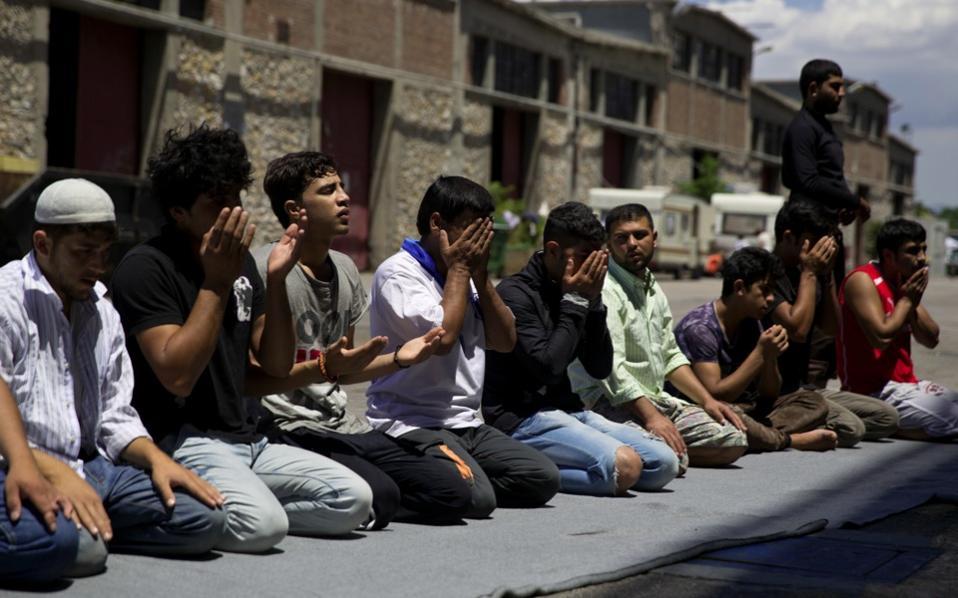

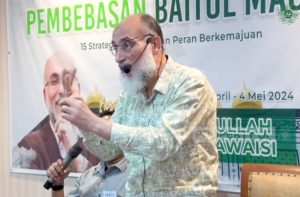
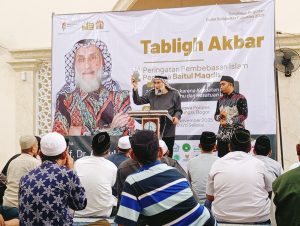

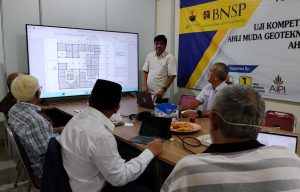

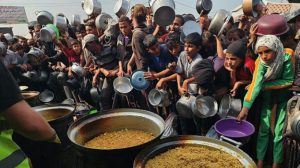


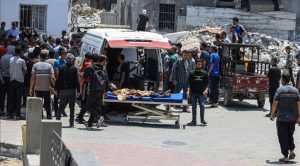
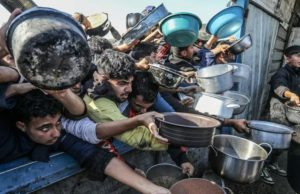
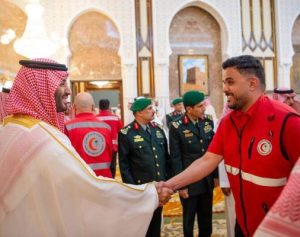
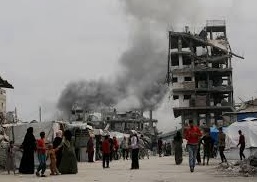
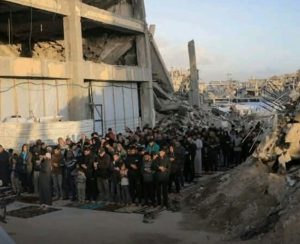
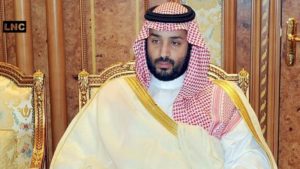














 Mina Indonesia
Mina Indonesia Mina Arabic
Mina Arabic